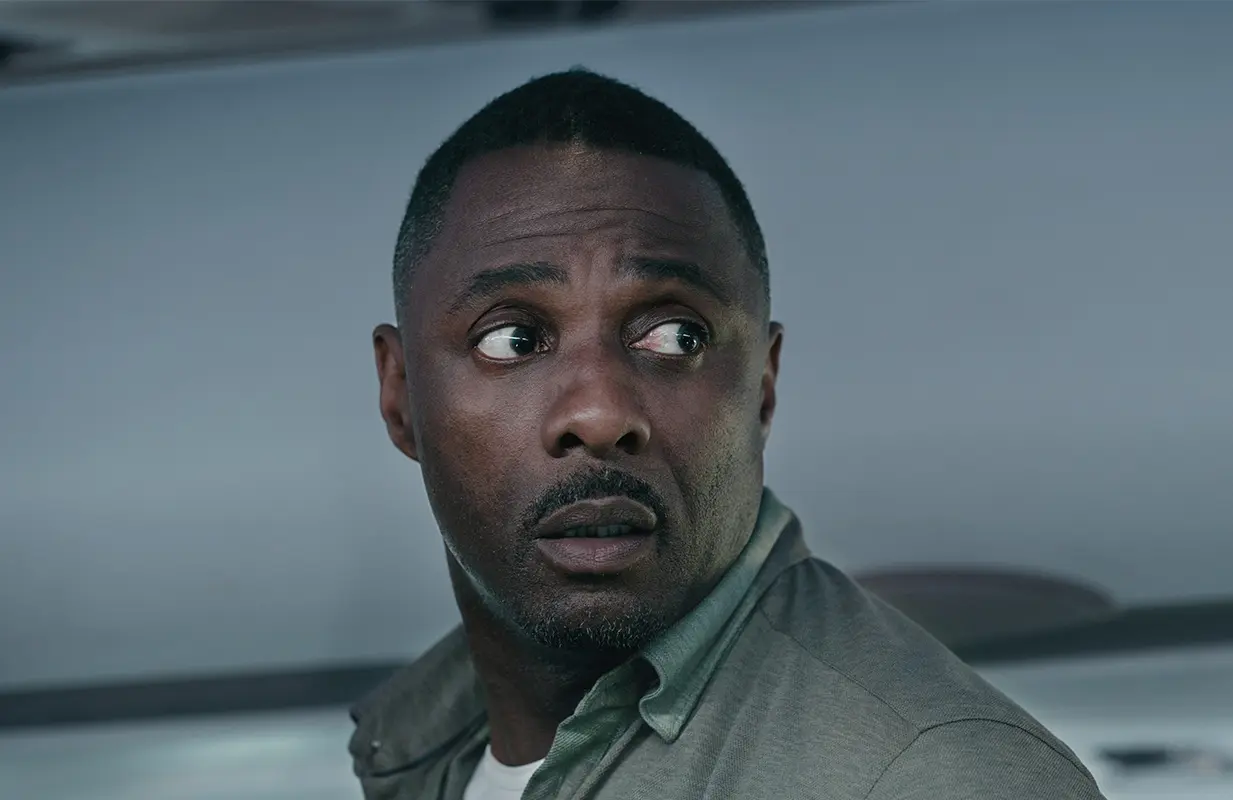The Real Horror of Hijack Lurks Among the Passengers Themselves
-
 Idris Elba in Hijack (Photo: Apple)
Idris Elba in Hijack (Photo: Apple)[Editor's Note: This post contains spoilers for the first two episodes of Hijack, "Final Call" and "3 Degrees."]
For frequent flyers, the most stressful moments in Apple TV+ thriller Hijack come in the premiere's opening minutes, long before the plane is overtaken by terrorists.
As Kingdom Airlines Flight 29 prepares to depart Dubai for London, passengers shuffle to their seats and gather their personal belongings for the seven-hour flight ahead. Almost immediately, familiar tensions emerge. A father (Marcus Garvey) struggles to fit his child's suitcase into the overhead bin, prompting eyerolls from his wife (Rochenda Sandall) and a reprimand from a woman in an adjacent seat (Liz Kingsman). When the woman insists the bin isn't "allocated" for their family alone, the wife matches her hostility, telling her new enemy, "It's not just us and our fruity water. We've got kids."
Elsewhere, a woman with flight anxiety (Julia Deakin) sends her husband (Richard Hope) in search of a more comfortable seat, and the flight attendant (Jeremy Ang Jones) laughs him off when he tries to pay 50 euro to be moved to business class. While the husband is gone, a young man (Jack Parry-Jones) senses the woman's discomfort and offers her pills from a mysterious blue bottle. She declines, aware that it's probably a bad idea to accept random pills from a stranger on a plane, and he dramatically tosses the bottle into the seatback pocket, as if she's somehow rude for turning down his offer.
While they may be more comfortable mid-flight, the passengers in business class are by no means spared the indignities of air travel. As the flight attendants give their routine safety briefing, a man (Harry Michell) plays a game on his phone at full volume, oblivious to the angry looks from the people around him. When the man seated next to him, Sam Nelson (Idris Elba, who also executive produces), asks him to mute his phone, he makes a big show of lowering the volume, only to turn around and bother Sam with personal questions after takeoff. "Enjoy the movie," says Sam, "Or whatever it is you're going to do that doesn't involve speaking to me."
For a show inspired by what's become an incredibly rare occurrence in the post-9/11 era, there's a surprising realism to these moments, which effectively capture the annoyances and anxieties that come with being on a plane. Creators George Kay and Jim Field Smith (Netflix's Criminal) don't bother glamorizing air travel: They seem to understand that people are at their worst when crammed into seats designed for profit rather than comfort or mobility. No matter what cabin they're in or how laid-back they may be — Sam strolls onto the plane seconds before the door closes with just a small shopping bag in his hand — every passenger must contend with nosy (or noisy) neighbors and condescending strangers.
The problem with people only becomes more apparent once the plane is in the air. When a teenage girl (Mei Henri) finds a stray bullet in the bathroom, the panic it creates among her friends prompts the hijackers to execute their plan sooner than expected. Armed with guns, the terrorists explain that if everyone stays calm, no one will get hurt, but certain passengers have other ideas: In the second episode, "3 Degrees," two men (Paul Hickey and Grant Burgin) with hero complexes (and racist attitudes about the hijackers) launch an attack that's swiftly thwarted. Their failed scheme puts everyone at risk as the gunmen proclaim that "any further resistance will result in a fatality."
Hijack's first two episodes suggest that the real horror of air travel isn't the possibility of a hijacking, but the fact that passengers are trapped in a confined space with people who behave selfishly, often in ways that are acutely detrimental to the wellbeing of those around them. Even in the most dangerous of situations, human folly has the potential to lead to our undoing. That reality makes the show's unlikely hostage drama, which unfolds in real time across seven episodes, all the more terrifying, as the greatest threat to the passengers' safety may not be the armed terrorists in control of the plane, but the strangers seated beside them.
New episodes of Hijack drop Wednesdays on Apple TV+. Join the discussion about the show in our forums.
Claire Spellberg Lustig is the Senior Editor at Primetimer and a scholar of The View. Follow her on Twitter at @c_spellberg.
TOPICS: Hijack, Apple TV+, George Kay, Idris Elba, Jim Field Smith